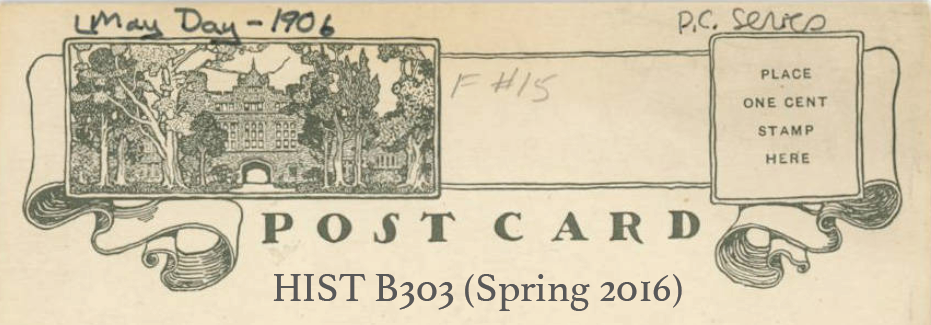I really enjoyed reading Ebony & Ivy and I really liked how at the forefront slave narratives and indigenous narratives were in this book. This may seem very obvious, but I feel like often these stories are told only to ‘check the box’ so to speak and it was very refreshing to study these stories so directly. I think that Wilder really challenges the typical way that the West defines itself, namely without regard for racism, slavery and colonialism and how these practices have defined (and continue to define) and shaped many institutions (including those of higher education) (Trouillot 98).
Many of the arguments brought up in Ebony & Ivy build on the themes that we have been discussing in class this semester. The history of oppression of indigenous peoples in this volume is incredibly important to the narrative that Wilder constructs and throws Dean Spade’s comments at the beginning of the talk we watched last week into sharper relief. The question of native peoples is one that Wilder addresses throughout Ebony & Ivy which I think is incredibly important because many of those stories are silenced or told in such a way as to make natives passive subjects. The very human framing of this volume I think is revolutionary in many ways because it does not hold slavery or racial oppression at a clinical arm’s reach (typical of many high school textbook, etc.) and instead engages with the horror in a productive way. One of the things that Wilder does is list the slaves of the people he introduces by name even when they do not ‘directly’ figure into the events he is examining, which I honestly found very moving.
Issues of marketing and funding, as we discussed on the first day of class, are not only interesting topics of discussion in the present day, but also I think important areas of historical analysis. Funding of early American institutions was of paramount importance to early college trustees and presidents and often depended directly on slavery and the profits of it. In Ebony & Ivy, Wilder discusses the funding of Dartmouth and William and Mary and how their “Indian colleges” were eventually closed because of lack of funding because of rising tensions between the colonists and Britain, a lucrative source of funding (Wilder 168). As we have discussed, Bryn Mawr and other similar institutions engage in active marketing which does not always reflect the values of the students or the current climate on campus.

I was also thinking about the way Wilder used names! I thought it was really important, and I thought it was interesting because it made me wonder if the names were the true names of the slaves. I’m thinking if they were the actual names that the slaves used or if they were just the names that the slaveholders gave them.